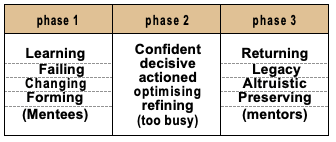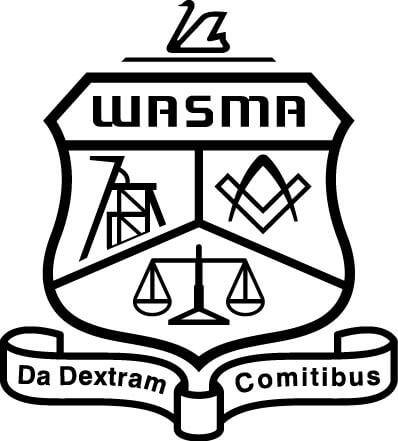
Case Study Info
- Case Study : WASM ALUMNI
- Category : Mentorship
When I reflect on how I have established my own career, I look to people that influenced me.
Although I can name some key mentors that guided me through some tough junctions, this was never formal and I have often learnt more about what not to do through observation or mistakes.
On my journey, it was also evident that peer or manager guidance has often served more their purpose than my own and rarely does someone offer “free” advice without an underlying motivation.
The alternative to this “learn from mistakes” pathway is harnessing the use of Mentors.
Mentoring is a critical element of personal and professional development. It enables the safe sounding of ideas and options before action. The Mentee gains greater insight into the potential consequences (positive and negative) of a decision through another’s experience.
We often hear it said that our industry is small and network connections are close. Although this is a strength of our sector, it can also constrain the conversations being held when we may doubt discussing our thoughts or decisions in fear of judgement.
A structured mentoring program offers a conduit to sound our ideas in a safe environment and ultimately build confidence, share knowledge and encourage sound decision making.
The current landscape of our future Industry skills is in demise in both Quantity and Quality unless we intervene on the current trend.
We recognise if we don’t respond to Retain, Attract and Develop key resource sector skills and preserve professional integrity in our Industry, Australia will lose competitive advantage and sacrifice significant national value creation to the economy.
There are efforts required in promoting STEM subjects in schools, tertiary entrants into resource education, community education on resource sector careers in technical, trades and operator positions which work to address attraction.
The Mentoring program addresses the retention and development aspects and is a key element to formalise the typically informal manner in how professionals enhance their core competencies in their field.
People work for People, not companies. And those Managers and Supervisors coach and train to serve their own purpose, to make their plans easier, predictable, stable.
A Mentor as opposed to a Manager offers a different perspective, from the individuals perspective – from a position of experience and impartiality. They want the Mentee to succeed but not for their own benefit.
Careers Can be viewed in 3 parts divided into decades

 Mentors in phase 2 and 3 gain great insights into the perception of the work environment witnessed by new industry entrants (Mentees). They can then develop to keep pace with changes to their own experience. Discussions keep an immediate relevance to the emerging challenges as these change over time.
Mentors in phase 2 and 3 gain great insights into the perception of the work environment witnessed by new industry entrants (Mentees). They can then develop to keep pace with changes to their own experience. Discussions keep an immediate relevance to the emerging challenges as these change over time.
Change sometimes must be generational, Diversity, Racism, Marriage Equality as examples. Mentors get ability to shape future Leaders over a long time frame across generations. This management of change will be necessary to sustain a healthy resource industry well into the future and maintain Australia with global relevance as leaders in this space.
In summary the Mentoring program is a rewarding legacy to leave to the future talent of our industry and
I encourage involvement from both Mentors and Mentees to contribute with enthusiasm and great effort.
Stuart Tonkin
BEng (Hons) Mining WASM
